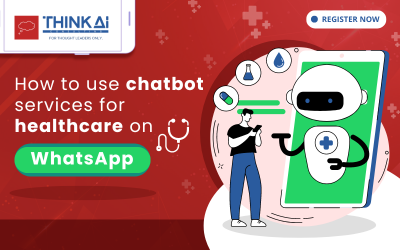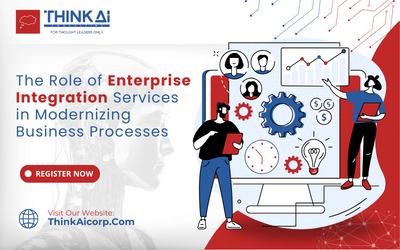In today’s fast-paced business environment, enterprises are constantly seeking innovative ways to streamline operations, enhance customer engagement, and improve overall efficiency.
One such innovation that has gained significant attention in recent times is the integration of chatbot services into business operations. Chatbots, powered by artificial intelligence (AI) and natural language processing (NLP), have revolutionized the way businesses interact with their customers.
In this article, we will explore the transformative impact of chatbot services on commercial enterprises and other organizations and try to understand how they can help organizations achieve their goals more effectively.
Chatbot Services: Meaning and Explanation
Chatbots are AI-driven software programs designed to interact with users in a conversational manner, resembling human communication. They can be deployed across various platforms, including websites, mobile apps, messaging apps, and even voice interfaces like virtual assistants.
Various apps like Alexa, Siri, or Google Assistant are some of the common examples of chatbot services that we’ve been using in our daily lives for the last few years.
Chatbots are versatile tools and can handle a wide range of tasks, such as answering frequently asked questions (FAQs), providing personalized recommendations, processing transactions, and more.
How It Impacts Enterprise Integration Services
Enterprise integration services refer to the seamless connection of various systems, applications, and data sources within an organization. These services are critical for achieving operational efficiency, reducing data silos, and ensuring that information flows smoothly across different departments and functions.
Successful enterprise integration leads to improved decision-making, faster response times, and enhanced collaboration among teams. In addition, a business firm can easily multiply its ROI and gain new leads or customers by making optimum use of Enterprise Integration Services.
Here are some common tasks that chatbots perform for enterprise integration:
24*7 Customer Engagement Support
Chatbots serve as the first line of contact for customers seeking assistance. When integrated with customer relationship management (CRM) systems and knowledge bases, chatbots can provide real-time responses, access customer data, and resolve issues efficiently.
It ensures that customers receive accurate and personalized support on time without fail, which increases the level of customer satisfaction and customer experience (CX).
Simplifies Internal Processes
Chatbots are not limited to customer-facing roles; they can also be integrated into internal systems to assist employees. For instance, HR chatbots can help employees with HR-related queries, while IT chatbots can troubleshoot common technical issues that employees and IT staff often encounter on a daily basis.
By automating routine tasks and inquiries, organizations can free up their human resources for more strategic work.
Data Integration
Enterprise chatbots can access and update data from multiple sources, such as databases, ERP systems, and inventory management systems. This integration enables chatbots to provide real-time information on product availability, order statuses, and more, enhancing the customer experience and improving operational efficiency.
Omnichannel Communication
Enterprises today communicate with customers through various channels, including email, social media, and messaging apps. Chatbots can be integrated into these channels, ensuring a consistent and seamless experience for customers on social networking sites and the company’s official business website as well.
Chatbots facilitate cross-channel interactions, allowing customers to conveniently switch between channels without losing context.
Analytics and Data-driven Insights
Integrated chatbots can collect valuable data on customer interactions, preferences, and pain points. This data can be analyzed to gain insights into customer behavior and improve product or service offerings. Enterprise integration services enable the consolidation of this data for comprehensive reporting and decision-making.
In Conclusion
Chatbot services have emerged as powerful tools for enhancing customer engagement, automating processes, and improving overall efficiency within the organization.
When integrated seamlessly into existing systems and processes, chatbots can drive significant value.
It’s high time organizations should harness the full potential of chatbots to provide exceptional customer experiences and streamline internal operations. Chatbots play a pivotal role in shaping the future of business operations. Those who are not able to integrate chatbots into their business processes are constantly losing out on an opportunity to better their services and stand ahead of their competitors in this highly competitive customer-oriented era.





